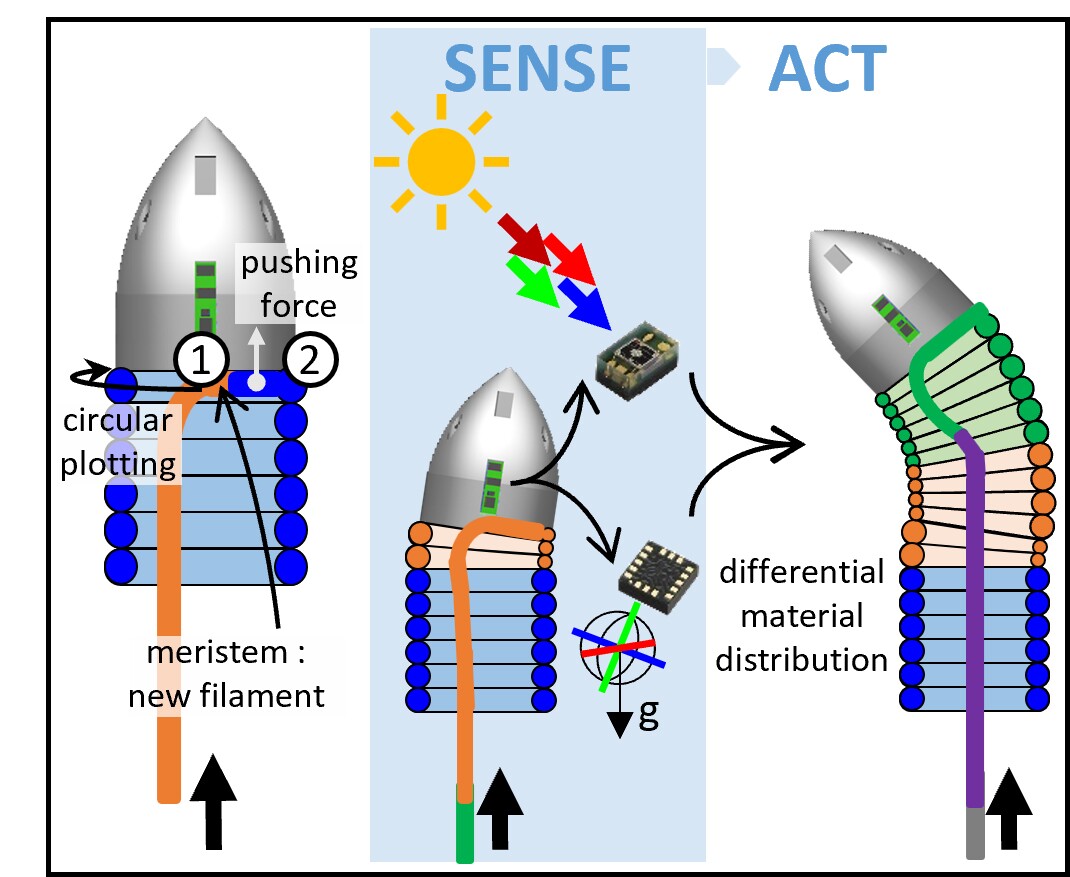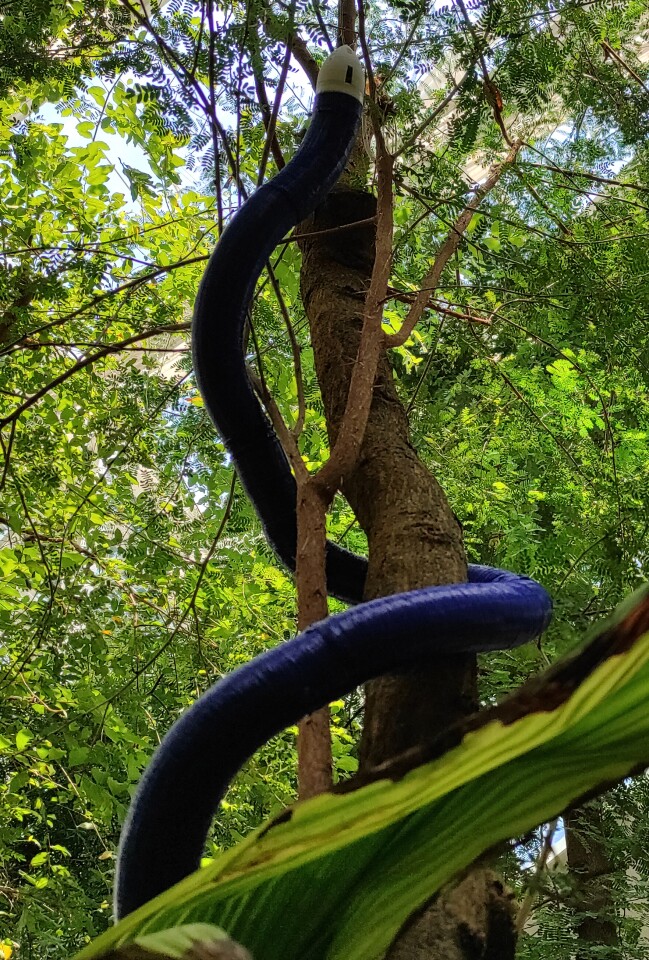When it comes to tasks like the exploration of unstructured environments, traditional robots may be stymied by obstacles such as uncrossable gaps. That’s where the FiloBot comes in, as it grows like a self-supporting vine.
Developed by scientists at the Istituto Italiano di Tecnologia (Italian Institute of Technology), the FiloBot is able to grow towards light sources and away from the pull of gravity (although it could also be set up to do the opposite) not unlike the tendrils of a climbing plant.
The device has a conical head at the top, a power source/base station at the bottom, and a stem-like body in between. That body gets longer and longer as the robot grows … but how does it grow?
Well, the FiloBot is continuously pulling a filament of 3D-printing thermoplastic up from a spool in its base station, into its head. That filament passes through a heated extruder in the head, which is slowly rotating relative to the body. In this manner, the robot 3D-prints its own body in successive coiled layers of molten plastic, which bond together as they cool.

Del Dottore et al., Sci. Robot. 9, eadi5908 (2024)
That said, the body isn’t printed in a uniform fashion. In response to light sensors, a gyroscope and other head-integrated electronics, the temperature, orientation and deposition speed of the plastic is continuously varied. In this way, the FiloBot is able to control the direction in which its body grows, always heading toward the light and away from the ground.

Del Dottore et al., Sci. Robot. 9, eadi5908 (2024)
What’s more, the robot automatically winds around vertical supports when they’re present (just like a vine winds around a trellis), allowing it to put less time and energy into growing a strong body when strength isn’t needed. When no adjacent support surfaces are detected, however – in other words, when the head has reached an open space – the body is grown stiff and strong, so it can support itself.
A paper on the research, which was led by Emanuela Del Dottore, was recently published in the journal Science Robotics. You can see the FiloBot in time-lapse growing action, in the video below.
FiloBot self-3D-printed, vine-inspired, “growing” robot
Source: American Association for the Advancement of Science via EurekAlert
appId : ‘38456013908’,
xfbml : true,
version : ‘v3.3’
});
};
(function(d, s, id){
var js, fjs = d.getElementsByTagName(s)[0];
if (d.getElementById(id)) {return;}
js = d.createElement(s); js.id = id;
js.src = “https://connect.facebook.net/en_US/sdk.js”;
fjs.parentNode.insertBefore(js, fjs);
}(document, ‘script’, ‘facebook-jssdk’));
